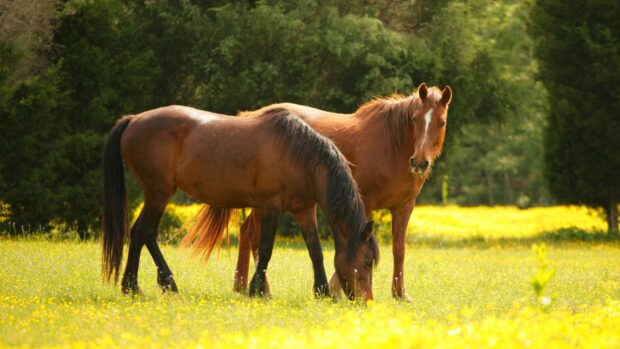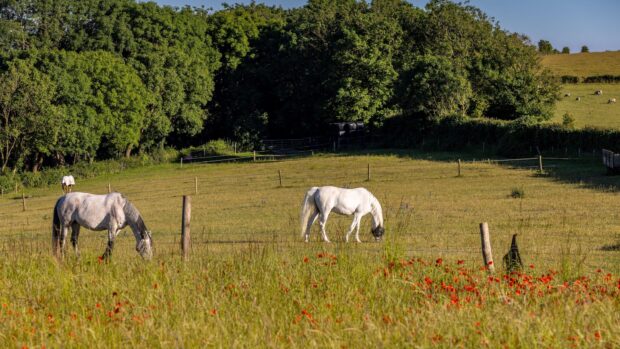A prosecution has highlighted the importance of clearing ragwort from your land.
Not only can ragwort be fatal to horses, owners may face fines and even imprisonment if it is allowed to grow on grazing areas.
In a recent case, a traveller was convicted at Guildford Crown Court for offences
under the Animal Welfare Act, after 2 ponies died from ragwort poisoning.
“The case was brought by the RSPCA and a conviction was based on failing to meet the needs of an animal and causing unnecessary suffering,” said a spokesman for law firm Clarke Willmott.
“He was disqualified from keeping horses, but this was subsequently lifted after an appeal due to his lifestyle. This case acts as a useful precedent and is an important reminder of the legal implications.”
Lee Hackett of the British Horse Society said ragwort reports increase annually.
“Complying with legislation should be one motivating factor to encourage people to remove it,” he said. “But that pales into insignificance when you consider the threat it poses to horses. Too many people seem to forget that ragwort kills.”
May to October is when the plant is at its peak and ingesting it causes serious liver damage. If it is on your land, you must dig it up from the roots (wearing gloves). If you see ragwort growing, report it to your council.
“It is an offence to fail to comply with clearance notices when they are issued,” added an RSPCA spokesman. “It is also an offence to fail to meet your animal’s welfare needs by allowing them to be in a hazardous environment.”
This news story was first published in Horse & Hound magazine (1 August 2013)




